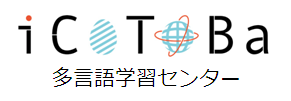愛知県立大学 特別講義 英語連続セミナー
第13回(1/4)
講演
- 講 師 手島 良 (武蔵高等学校中学校教諭)
- 演 題 A Way to Improve Your Pronunciation of English
感想
英米 2年
Actually, I like listening to English by using podcasts. So, I listen to the NHK radio Japan’s Daily News. The newscaster’s report of the world news is delivered using very clear English. I noticed these news caster’s English pronunciation follows today’s lecture contents. So, if I can speak English as I learned from today’s lesson, my speaking ability will be better. I want to practice these pronunciation rules.
英米 2年
I am majoring in Linguistics, so today’s lesson was very interesting. Pronunciation is sometimes difficult for English learners. Since I was a junior high school student, I have been confused about how to speak English as fluently as a native speaker. In the English phonetics class, I practiced pronunciation of English sentences to record my voice and listen again to it and correct it. I was surprised that the sound is stronger than what I imagined. Through today’s lesson I can realize how to pronounce words like a native speaker. I will think about stress more carefully and I want to speak more fluently.
英米 1年
I’m really glad to attend this presentation because I’m interested in how to improve my English pronunciation. I realized that the same stress patterns can be applied for words, phrases or sentences, for example, “summer”, “make it” or “Help me”. I can easily understand or remember in that way by connecting the same stress patterns. His instruction was easy to understand and I could understand the lecture easily. It is especially difficult to understand “What are you looking for?” “for” is not ● but ・, but I could understand. This lecture was so useful. I really enjoyed it.
英米 2年
I think I’m not good at English pronunciation because there are a lot of patterns. Therefore, I wanted to give up remembering the patterns. However, in this class, Mr. Teshima showed us how to remember the stress patterns. Rhythm is very important to remember them. I understood that I should practice the stress patterns with rhythm and get used to doing that. Moreover, singing English songs is very useful practice.
フランス 2年
When we usually speak English, we pronounce the words unconsciously. We were taught words’ stress in high school for our exams, but we didn’t study the sentences’ stress. So, I’m interested in today’s presentation. It is very important to pronounce with correct stress for telling the point that I want to tell more clearly. Thank you for your presentation!
フランス 2年
I have always wanted to pronounce English very well like native speakers do, but I have had no idea how to do this. I have never thought about his way of approaching English, so I was very surprised. But, at the same time, I was so happy to know it because I thought I still have lots of possibility not to keep my English skills at the current level, but to improve them. When I read English aloud, I will try to check which word or which part I should stress before I start reading.
国際関係 3年
I often fail to make myself understood to English speaking people. Today’s lecture is very helpful to change my perception of stress. I didn’t know the rules of ● and ・depending on the part of speech. When I speak next time, I will pay attention to the rhythm as I learned today. Now I have a bit more confidence to articulate English. To my surprise, I felt it was easier to sing “My Grandfather’s Clock” after the lecture while conscious of pronunciation, and I enjoyed singing it.
スペイン 1年
I thought how Mr. Teshima expressed stress patterns was very unique and interesting because he used dots to express them. After he taught us how to read using the dots, I really felt that I could read English easier and more rhythmically. So, I thought I want Mr. Teshima to teach this to many other people.
国際関係 3年
Experiences, such as talking and listening, or practice, such as imitation, are the best ways to get accustomed to English or any other language’s pronunciation and intonation. Rules are also important, but they might be more helpful for those who have got the hang of it just to make their pronunciation solid. Sometimes people ask me how to pronounce [é] and [ó] in Portuguese. I tell them [é] is similar to the voice when you’re about to throw up, and [ó] is like between [a] and [o].
国際関係 2年
I learnt that rhythm is quite important to improve my pronunciation. In my opinion, Japanese people watch their consonant sounds when they speak in English, but native speakers watch their vowel sounds and rhythm. This tiny tip will change your pronunciation. I want to pronounce sentences rhythmically from now on. Thank you very much.
